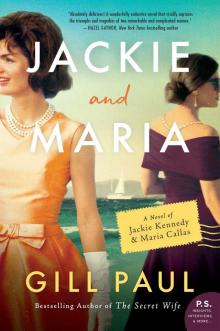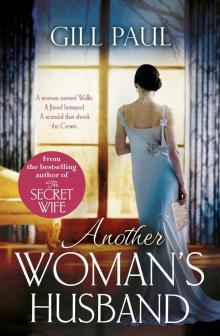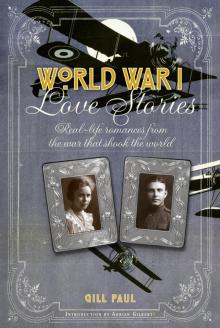Jackie and Maria Read online
Page 6
MARIA THREW HERSELF into the production of La Traviata in Dallas, while at the same time rehearsing for Medea. She loved the ensemble she was working with—the director, the musicians, the other singers—and worked obsessively, trying out new textures and cadenza, figuring out ways to make dramatic use of the set, practicing till she was note perfect. She pushed other worries to the back of her mind and focused on making these her best performances yet. What was the point in treading water? She wanted to improve, and working with a great team gave her a chance to push herself, the way she used to back at La Scala.
On the afternoon of the dress rehearsal for Medea, a telegram came from the director at the Met with a schedule for her forthcoming commitments. He wanted her to alternate the roles of Lady Macbeth and Violetta in La Traviata, one after the other, with no rest between. The former was a dark, forceful role, the latter a weak, delicate one, and Maria knew that switching between the two would put a huge strain on her voice. It was the words at the end of the telegram that enraged her: “Your confirmation is required by ten tomorrow morning.”
“It’s like a declaration of war!” she told Battista. “Like the demands Italy made on Greece that forced us into the Second World War.”
“It is the Met, Maria,” he replied. “Perhaps we should agree.”
Mary Carter was attending the dress rehearsal, and she took a different line. “Stuff ’em. They can’t treat you like that. Make ’em wait.”
Maria was at the stage of rehearsals when she was living and breathing the role of Medea, the volatile wife whose husband ran off with a younger woman, stealing their children and leaving her intent on revenge. It was a tempestuous role fraught with tragedy. She couldn’t focus sufficiently to devise a way of keeping the Met happy while not compromising her voice.
“They must give me two more days to think about it,” she told Battista. “Until after we open here.”
The following afternoon another telegram arrived from New York. It read, “Since we did not hear from you by ten this morning, your contract with the Met is hereby terminated.”
Maria stared at it in disbelief. “What did you reply yesterday?” she asked Battista, breaking her rule of resting her voice on a performance day.
“I didn’t reply,” he said. “You didn’t tell me what to say.”
She clenched her fists, digging her nails into her palms. “I told you to ask for two more days.”
“I’ll consult our lawyers,” Battista said. “I’m sure they can’t do this. I’ll threaten to sue.”
Word came back that the Met were within their rights because a deadline had been missed. Suddenly Maria could feel her entire career slipping away from her. Like a landslide, it began with one or two rocks tumbling off a cliff, then the ground shifted entirely. Rome had gone, Vienna had gone, San Francisco had gone, La Scala had gone—and now the Met? It was a disaster.
But when she took the stage in Dallas a few hours later, she channeled all her fury and despair into Medea, giving a performance of such fiery brilliance that she stunned her fellow performers, left the audience enraptured, and even surprised herself.
Chapter 11
Nice, the South of France
August 1958
Lee and Jackie lay sunbathing on a raft anchored a hundred yards off the beach. Both were deeply tanned and wearing two-piece swimsuits with halter necks, the height of fashion in France that year, which would have been considered racy back in the States. Jackie had on a cream swimcap covered in rubber flowers.
She raised herself on an elbow. There was a deep valley between her sister’s hipbones and she worried that Lee had gotten too thin again. As teenagers, they’d swapped tips on slimming—eating grapefruit, smoking cigarettes, running in place—but Lee took it too far sometimes. Yet another area where she was competitive with her older sister.
“I can’t face going back to tedious old London,” Lee said, without opening her eyes. “The weather changes to fall overnight, bringing gray skies and damp. I’ve never known such a damp city.”
“Have you got a case of the blahs?” Jackie asked. It was a phrase they’d used since childhood. “Or is it Michael who’s making you crabby?”
Lee and her husband hadn’t stopped bickering since they’d arrived at the villa. They couldn’t find a civil word for each other. She’d married too young, in Jackie’s opinion, without thinking through what she wanted out of a husband, and Michael wasn’t strong enough to keep her in line.
Lee sighed. “If only we had children, I think I could bear it. But after five years of trying, the doctors tell us he has a low sperm count. Just my luck.”
Jackie sat up and hugged her knees to her chest. She felt so blessed with little Caroline, now nine months old and starting to crawl. When she entered a room, she thumped the floor with her hands to announce her presence: I’m here! She had a determined personality, liking blueberries and refusing cheese, with firm favorites among her toys. Jackie marveled that they had created this unique person from scratch.
“Children don’t fix a marriage,” she said. Jack was a doting father, but that didn’t mean he was home any more often. It just meant that, when he was, he lavished attention on his daughter rather than on his wife. “What you and Michael need is money. Serious money. It makes all the difference, not having to worry.”
They were both aware of the importance of wealth from their mother’s two contrasting marriages: first to a man who’d teetered on the verge of bankruptcy, and then to a millionaire. The girls had grown up knowing they needed to marry money, because nothing but debt would come from Black Jack’s estate, while their stepdaddy, Hugh Auchincloss, would leave his Standard Oil fortune to his own children. “Money and power,” Janet Auchincloss drummed into them. “That’s what you need in a husband.”
“Shame Michael and I can’t have an allowance from the Kennedy bootlegging fortune,” Lee remarked, and Jackie shushed her with a giggle. She didn’t ask questions about where Joe Kennedy’s fortune had come from but had heard the rumors, like everyone else.
“Did I tell you I’ve met someone?” Lee ventured, opening one eye to gauge the reaction. “His name’s Stas. He’s a prince in exile, from Poland. But it’s complicated because he’s married, I’m married . . .” Her voice wobbled.
“Be careful,” Jackie cautioned with a frown. Lee was emotionally precipitous, always had been. “Maybe he won’t leave his wife, while you could lose your own marriage if Michael found out.”
“Michael would never leave me; he’s not the leaving type.” Lee sounded dismissive.
“Is he faithful?” Jackie asked. She and Lee didn’t often get the chance for intimate conversation, but it seemed this was a moment.
“I couldn’t care less,” Lee said, adding, “but I doubt he’d stray; he’s too boring to have a mistress.” She rolled onto her side to face Jackie. “How about Jack?”
Jackie blinked, her mind flitting through the blond assistants with pert rears and pointy breasts who were forever scurrying around Jack at conventions. “Who knows?” she replied, then added, “Infidelity isn’t the worst thing in a marriage.”
Just at that moment, they heard the splashing of someone swimming up to the raft.
“Why, Jack!” Lee cried as his head bobbed up. “What a powerful stroke you have! We were just talking about you.”
Jack hauled himself onto the raft to join them, and Jackie admired the muscles of his upper arms. He was in good shape, even though he couldn’t exercise as much as he used to because of his bad back.
“Guess where we’ve been invited tonight?” he asked Jackie.
She shook her head. “Where?”
“Aristotle Onassis’s yacht is moored in the harbor and Churchill is one of the guests on board. We’ve been invited for drinks.” He grinned, his teeth white and strong.
“Are you sure it’s wise to socialize with Onassis?” Jackie asked. “Is that business over the fraudulent ships all settled?”
“Yeah, we kissed and made
up with him back in ’55. Technically a U.S. victory but he didn’t come out of it too badly.”
“Let’s go, then,” Jackie said. Churchill was one of Jack’s great heroes and she knew he would be determined to make an impression.
“Ooh, can I come?” Lee begged.
“I’ll call and ask. We’ve to be there at six-thirty sharp. I think I’ll wear black tie. See you later, girls.” He stood and executed a perfect dive into the sea.
“Black tie?” Jackie raised an eyebrow at Lee. “I bet the other men won’t even be wearing ties. But I guess it’s his call . . .”
JACK, JACKIE, LEE, and Michael were greeted by Onassis himself at the top of the Christina’s gangplank. As Jackie had predicted, he was wearing an open-necked shirt and casual pants. She winked at Lee.
“I’m delighted you could come,” Onassis said. “It’s an honor to meet you.”
The yacht was every bit as swanky as a five-star hotel. Their host led them along the deck to a seating area near a turquoise swimming pool with a mosaic of a minotaur at the bottom.
“It converts into a dance floor for parties,” Onassis told them with a wry grin, as if simultaneously boasting and laughing at himself for boasting.
“Is that a helipad I see?” Jack pointed.
“Yes, it’s useful when I’m in a hurry.” He circled his finger in the air.
The other guests were seated in cushioned rattan chairs, alongside rattan side tables on which to place their drinks. There were around twenty of them, and Jackie memorized the names as Onassis made the introductions. Jack blatantly snaked his way toward Churchill, pulling up a chair so he could sit by him.
“We met before,” Jackie said, when it was her turn to be introduced to the old man. “At a Buckingham Palace garden party.” She’d been invited there while on a European tour with a school friend and had joined the line to shake hands with Churchill. They’d had only a brief conversation, but it was a cherished memory. She didn’t for one moment expect him to remember, but Churchill nodded and said, “Of course. Yes.”
Jackie thought he seemed befuddled and wondered how much he’d had to drink before they arrived. She greeted Lady Churchill, then chose a chair from which she could observe the party. She loved people-watching. Onassis was circulating, making sure everyone was comfortably seated and relaying their drink of choice to the hovering waiters.
“I’ll have a vodka martini, thanks,” she requested when her turn came.
“With an olive?” he asked.
She arched an eyebrow. “Is there any other way?”
He crouched by her chair, holding on to the arm, and she noticed he shaved the backs of his hands. There was something vulpine about him: hairy chest, glinting golden-brown eyes, a flash of teeth.
“Personally, I’m a man of simple tastes: a good bottle of red, then an aged brandy or cask whiskey drunk under the stars. But I believe there are many types of martinis now, and some young women even take theirs with a cocktail onion. Scandalous behavior.” He grinned. “Tell me, did your baby daughter accompany you on this trip?”
“She did.” Jackie smiled. “But her nanny will right this moment be tucking her into her crib.”
Onassis’s pretty blond wife, Tina, joined them, asking questions about Caroline’s progress. “My own children are ten and seven,” she confided, “and I miss those early years terribly. They were unbearably cute babies.”
Onassis stood to address another guest and Jackie was left talking to Tina about children, but she watched the rest of the party out of the corner of her eye. Jack was doing his best to charm Churchill, giving him the hundred-watt smile and touching the old man’s arm.
“I’ll send you a copy of my book, Profiles in Courage,” she heard him promising, and she cringed on his behalf when Churchill clearly hadn’t heard of it, despite the fact that it had won the Pulitzer the previous year.
His wife, Clemmie, whispered something in Churchill’s ear, and he nodded and murmured, “How kind.” It was then Jackie realized he was a bit senile, and that made her sad. She was a fan of the history books he had written, as well as his stirring rhetoric during the war years, which had galvanized the public in America as well as Britain.
Lee was standing with Onassis by the ship’s railing, striking in a white silk Chanel tunic that had cost a king’s ransom. She bent toward him like a willow branch, head tilted to one side. Jackie couldn’t hear what they were discussing but knew from her sister’s posture that she was flirting. She was a born flirt. Michael was engaged in conversation with an English guest and didn’t glance up. Jackie feared for Lee. Divorces were always traumatic, and her sister was a fragile creature.
The waiters circulated with little plates of delicacies: mounds of glistening black caviar heaped on melt-in-the-mouth wafers, slivers of sweet orange melon wrapped in salty ham, miniature vol-au-vents with pink prawns balanced on top. As soon as a glass was less than a third full, a waiter silently appeared with a fresh drink. It was extraordinarily civilized. Jackie’s mother would have approved; she was a consummate hostess and had coached both her girls in social skills.
It had been daylight when they arrived, but as they walked down the gangplank an hour later it was dark, and the lights of the town twinkled in a giant smile.
Jackie teased Jack about his obvious courting of the former prime minister. “I’m not sure you made much of an impression. If anything, he looked baffled. I think he thought you were the waiter.”
Jack grinned. “You were right that I was overdressed in black tie. I never can understand dress codes.”
“Why is Churchill cruising with them?” Lee asked. “I wouldn’t have thought he and Onassis had much in common.”
It was Jack who answered: “Onassis collects celebrities. He’s had Garbo, the Grimaldis, all kinds of rich and famous on board, and Churchill is the biggest prize of all. Whoever said money can’t buy you friends was a fool.”
Jackie linked her arm with his as they walked down the quay toward Chez Palmyre, the restaurant where they had dinner reservations. “I don’t think anyone ever said that, darling. It’s so patently untrue.”
Chapter 12
Paris, France
December 19, 1958
Are you sure you haven’t forgotten anything?” Maria wrote on her notepad, and held it up for Battista to see. Her gala performance at the Paris Opéra was that evening and she felt agitated.
“Of course not.” He never had any patience with her pre-performance nerves.
Maria looked at him, sitting with his legs slung over the arm of his chair, reading an Italian newspaper without a care in the world. Her faith in him had sunk to an all-time low after they lost the Met contract. A decent manager would have salvaged the situation, but instead there were denigrating headlines alleging that she had been scared her voice wasn’t up to the role of Lady Macbeth. It simply wasn’t true—she’d sung it many times. A good publicist could have contradicted them, but it was left to Maria to call radio-show hosts and press contacts to deny it. She felt humiliated at being forced on the defensive.
It was no wonder that she was alarmed about Battista being in charge of so many of the arrangements for the evening’s concert, which was to be televised live in nine European countries. The 2,130 seats had sold out overnight despite a steep price of 35,000 francs apiece, and Maria’s fee was a record-breaking 5 million francs. Those figures rattled her, increasing the pressure exponentially.
“You’ve sung to audiences this big before,” Battista replied.
He couldn’t understand that the more famous she became, the harder it was. What if her top notes weren’t there tonight? Sometimes—not often, mercifully—they just refused to come. It happened to all first sopranos, but it would be devastating if it occurred when television viewers across Europe were watching, many of them hearing her for the first time.
She walked through to the bedroom and slammed the door, then poured herself a glass of water. She had to drink lots of water on
performance days, served at room temperature, no ice. Standing by the window, with a view of the Paris skyline, she ran through some exercises to relax her throat and jaw, but found it hard to concentrate. No longer feeling that she could trust Battista made it hard to focus. He wasn’t any different; the change was within her. She wished there wasn’t such a chasm between them and that she didn’t feel quite so alone in her marriage.
She heard a knock at the door of their suite and Battista calling “Come in.” When she popped her head out, she saw a bellhop carrying a huge bouquet of red roses, at least two dozen of them.
“For Mrs. Callas,” he said, placing them on the table.
Maria picked up the card, which was in Greek, and smiled as she read it: “This evening you have one chance to change my mind about opera. Aristo.” She inhaled the summery scent of the roses as the bellhop produced a vase in which to display them.
She nudged Battista, hoping he would offer the man a tip, but he didn’t look up from his newspaper, so she had to scrabble for a few francs in her own purse.
“How did Aristotle know where we were staying?” she wrote on her notepad.
“He called last week wanting an invitation to the after-show party,” her husband replied. “I must have told him then.”
Maria was pleased. It was a good night for him to hear her for the first time. She was singing a program of famous arias in the first half, followed by the second act of Tosca—all of it easy listening. Maybe Mr. Onassis would even stay awake.
MORE ROSES ARRIVED from Aristotle later in the afternoon, but by then Maria was engrossed in her preperformance warmups and paid little attention. By the time they reached the Opéra she had already begun her transformation into her stage alter ego, a figure whom, in her head, she called “La Callas.”
She placed the Madonna icon on her dressing table and sipped water as her hair and makeup were done, focusing her mind as she watched her reflection. Two dressers helped her into a champagne satin gown trimmed with sable, and fastened the million dollars’ worth of diamonds she had been lent for the night by Van Cleef & Arpels. Their security guard sat outside her dressing room, looking officious, and he would stay in the wings throughout the performance.

 The Collector's Daughter
The Collector's Daughter The Lost Daughter
The Lost Daughter Jackie and Maria
Jackie and Maria The Affair
The Affair Love...Maybe
Love...Maybe The Secret Wife
The Secret Wife No Place For a Lady
No Place For a Lady Another Woman’s Husband
Another Woman’s Husband World War I Love Stories
World War I Love Stories World War II Love Stories
World War II Love Stories